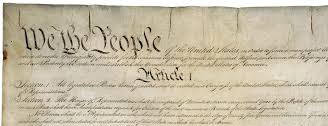It is established that Congress, in dispensing grants to state and city governments earmarked for special purposes (law enforcement, education, etc.), can stipulate conditions for such grants. This is a component of the concept of fiscal federalism, the monetary relationship between federal and state/city governments. However, there are limits. In the 2012 Obamacare case, the Supreme Court ruled that Congress could not impose a new condition on states for continuing to participate in the Medicaid program. But what’s being tested now is whether the president can impose conditions of his own for receiving grants that Congress has authorized. The answer that Trump is getting from the federal courts is: No.
What Trump has been trying to do is punish the governments of “sanctuary cities”–that is, cities whose law enforcement departments do not help the federal government enforce its immigration policies any more than the written law rigidly requires them to–by withholding or reducing federal grants to those cities, especially for law enforcement. Some months ago, Trump was told by the Seventh Circuit Court of Appeals in Chicago that he can’t do that. Now, he’s being told the same thing by a Federal District Court judge in Los Angeles. Judge Manuel Real wrote in his ruling that only Congress can set conditions for receiving federal grants, and that when Congress doesn’t make a grant conditional, the president can’t add conditions of his own.
This is one of the ways that the checks and balances system functions: presidential executive orders and administrative policies, like acts of Congress, can be struck down by federal courts. Federal courts thus limit the powers of the other two branches, in this case the presidency.
Associated Press story on MSN.com, February 15, 2019



